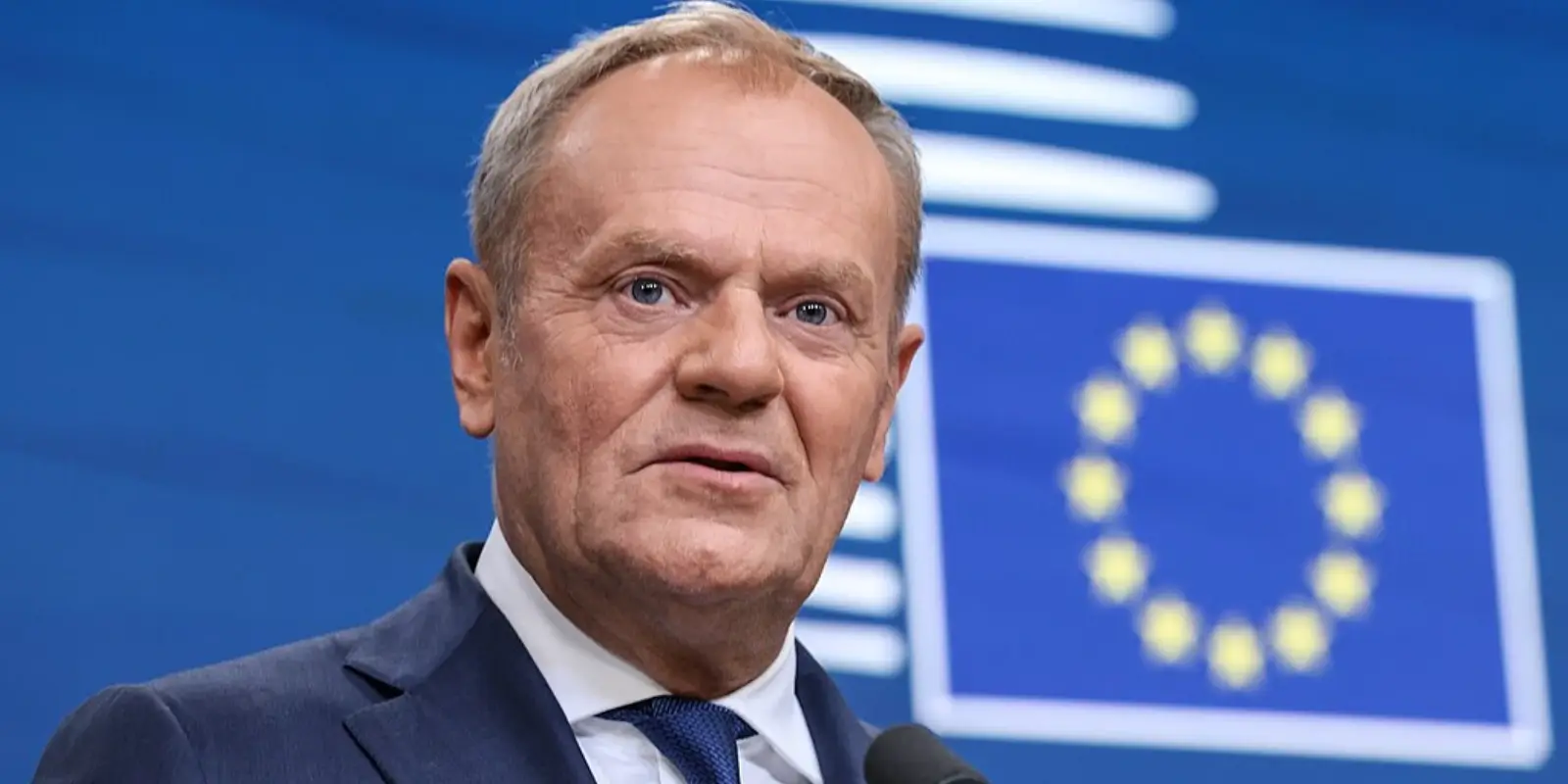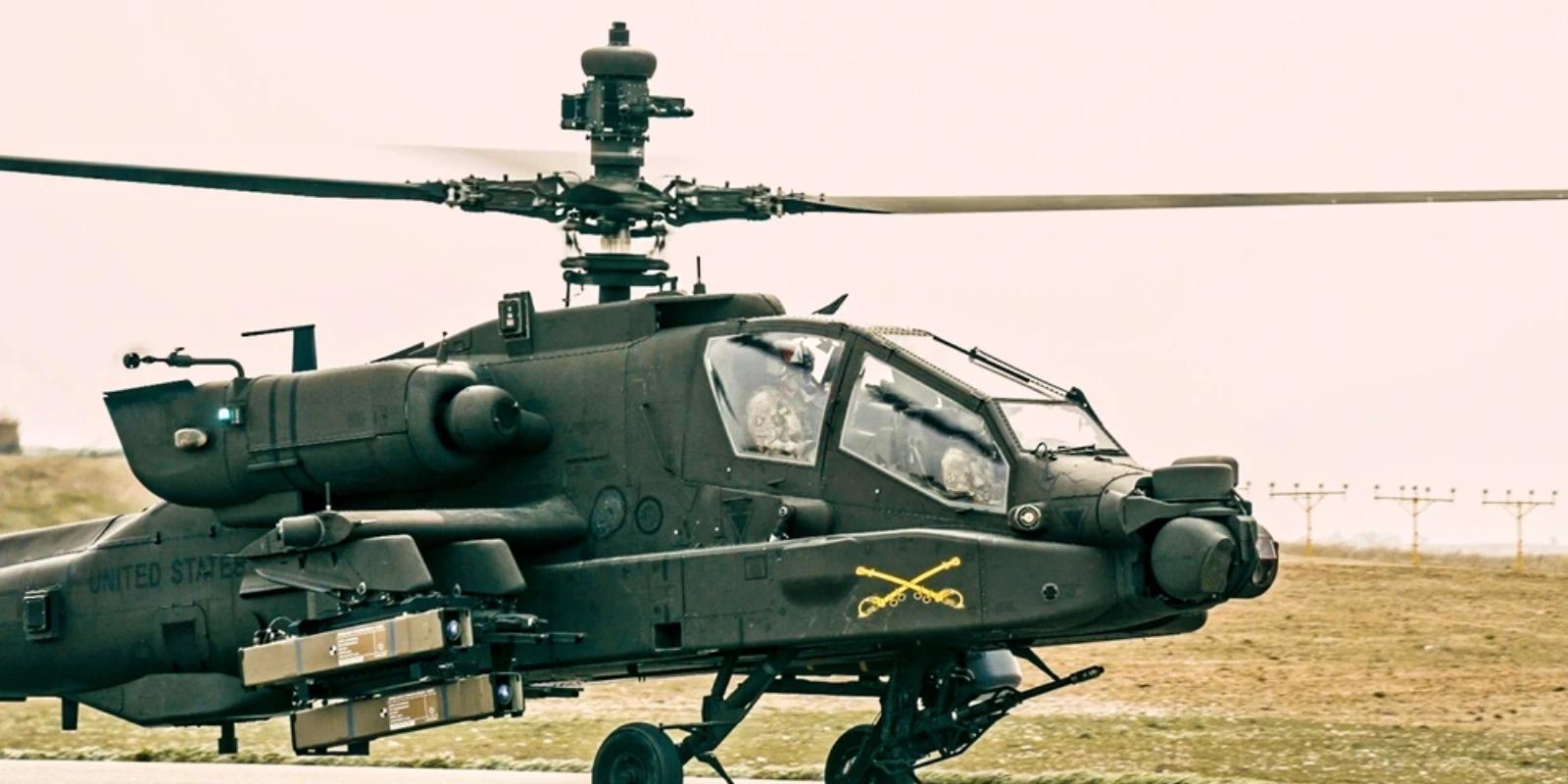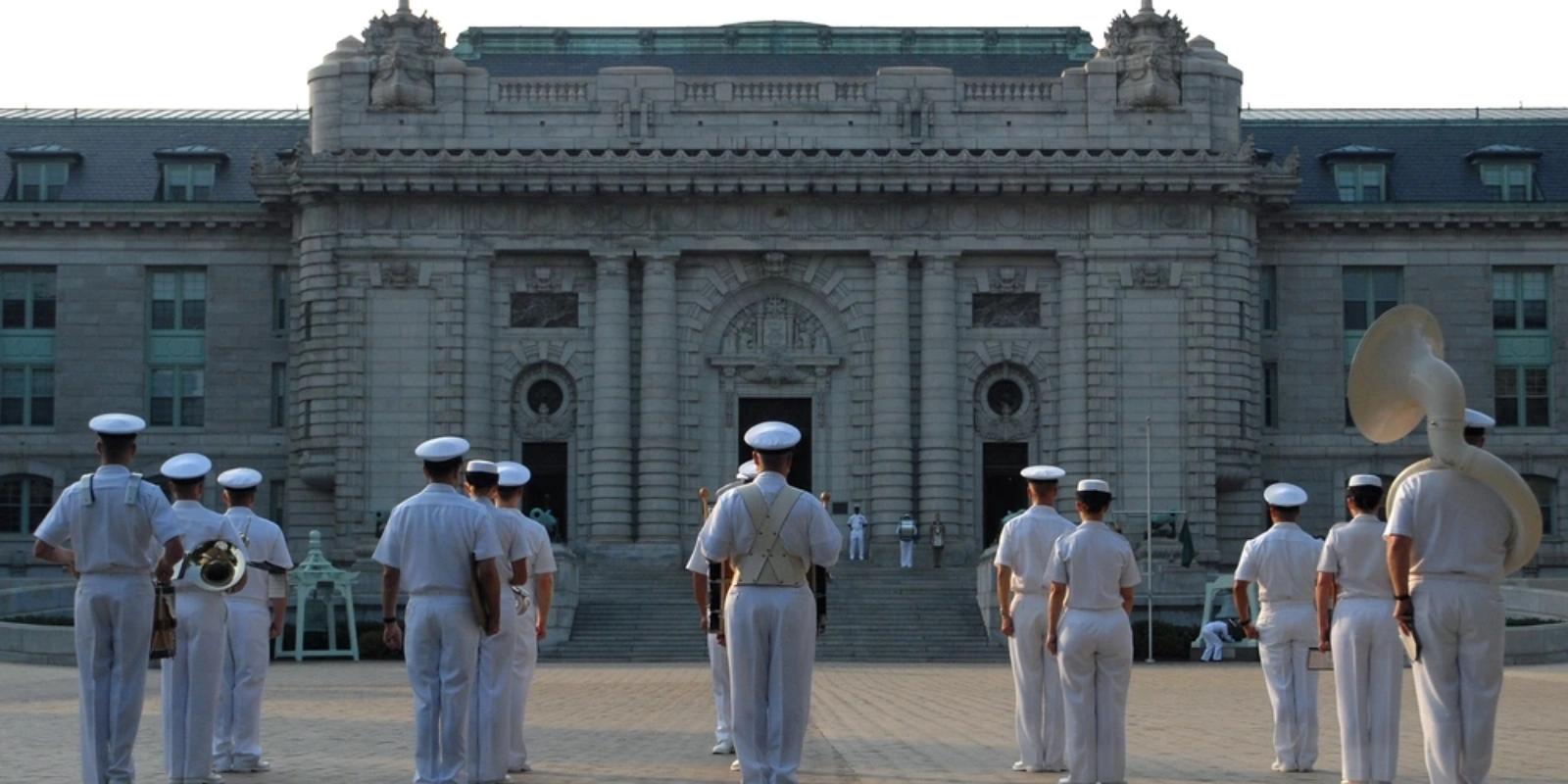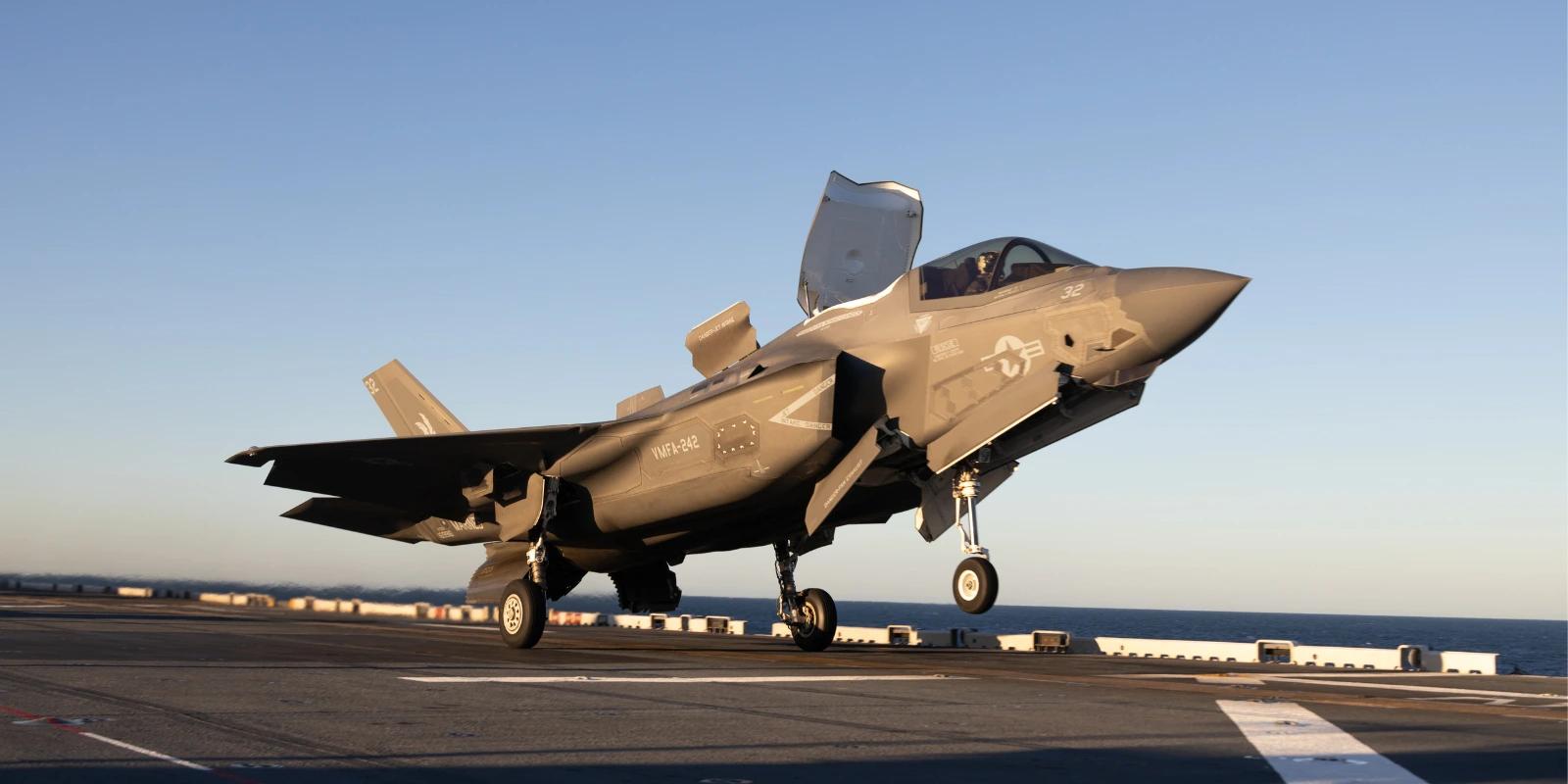On Wednesday, September 10, the Polish military said 19 “objects” entered their airspace. Most of these "objects" were later confirmed to be Russian drones and, according to some sources, at least four of them were shot down by Polish F-16 and Dutch F-35A fighter aircraft, marking the first time that NATO forces had fired shots during the Russia-Ukraine War.
While Moscow contends that no strikes on Poland were planned, no explosives in the drones were found, and there was no confirmation that the devices were even Russian, Poland isn’t taking any chances.
It has invoked NATO Article IV, which will likely drive a special session of the North Atlantic Council (NAC) where Poland’s urgent security concerns will be discussed with its alliance partners.
Russian Drones Violate Polish Airspace
A NATO package of Polish F-16 fighters, Dutch F-35 fighters, Italian E-550 Conformal Airborne Early Warning (CAEW) aircraft, and a NATO Airbus A330 Multi Role Tanker Transport (MRTT) air refueling aircraft scrambled from their alert bases in an operation to shoot down drones entering Polish airspace from Tuesday evening until morning, officials said.
At least four of the drones were downed by the Polish and Dutch fighter aircraft.
One drone smashed into a two-story brick house in the eastern Polish village of Wyryki-Wola, destroying the roof and strewing debris across the bedroom. The owner said the house needs to be demolished.
Elsewhere in southeastern Poland, a blackened spot of land showed where some other drones had fallen.
After the event, Polish Prime Minister Donald Tusk told parliament it was "the closest we have been to open conflict since World War Two," although he also said he had "no reason to believe we're on the brink of war."
Russia Denies Responsibility
Moscow initially rejected accusations that it intentionally targeted Poland, and Kremlin propagandists took the rhetoric a step further by pushing the line that Russia is being unfairly accused as NATO allies express concerns about an escalation in the war.
An op-ed in Russia’s Rossiyskaya Gazeta painted the global outrage around Russian drones breaching the NATO member's territory as part of the "demonization" of Moscow. It also accused Poland of "provocation" with its rhetoric.
The Gazeta piece said Europe's leaders "need an escalation of the Ukrainian conflict, a further demonization of Russia, and a reason to increase pressure on Trump to abandon efforts for a peaceful settlement."
Other pro-Kremlin newspapers also took aim at the West. A piece in Moskovsky Komsomolets was headlined "a big provocation in Poland—they are trying to turn the Special Military Operation (Russia’s term for the conflict) into a pan-European war."
The article also said that the origin of the drones has not been proved, and the controversy could suit Ukrainian President Volodymyr Zelensky, who has long sought the direct participation of the West in the war. It suggested that Kyiv's goal "is to force Trump to change his political course."
Some have even suggested that the drones weren’t even Russian. Kremlin mouthpiece, Izvestia, quoted military expert Viktor Litovkin as saying that the drones that entered Poland on Wednesday could have been a "provocation by Ukraine or one of the Baltic states."
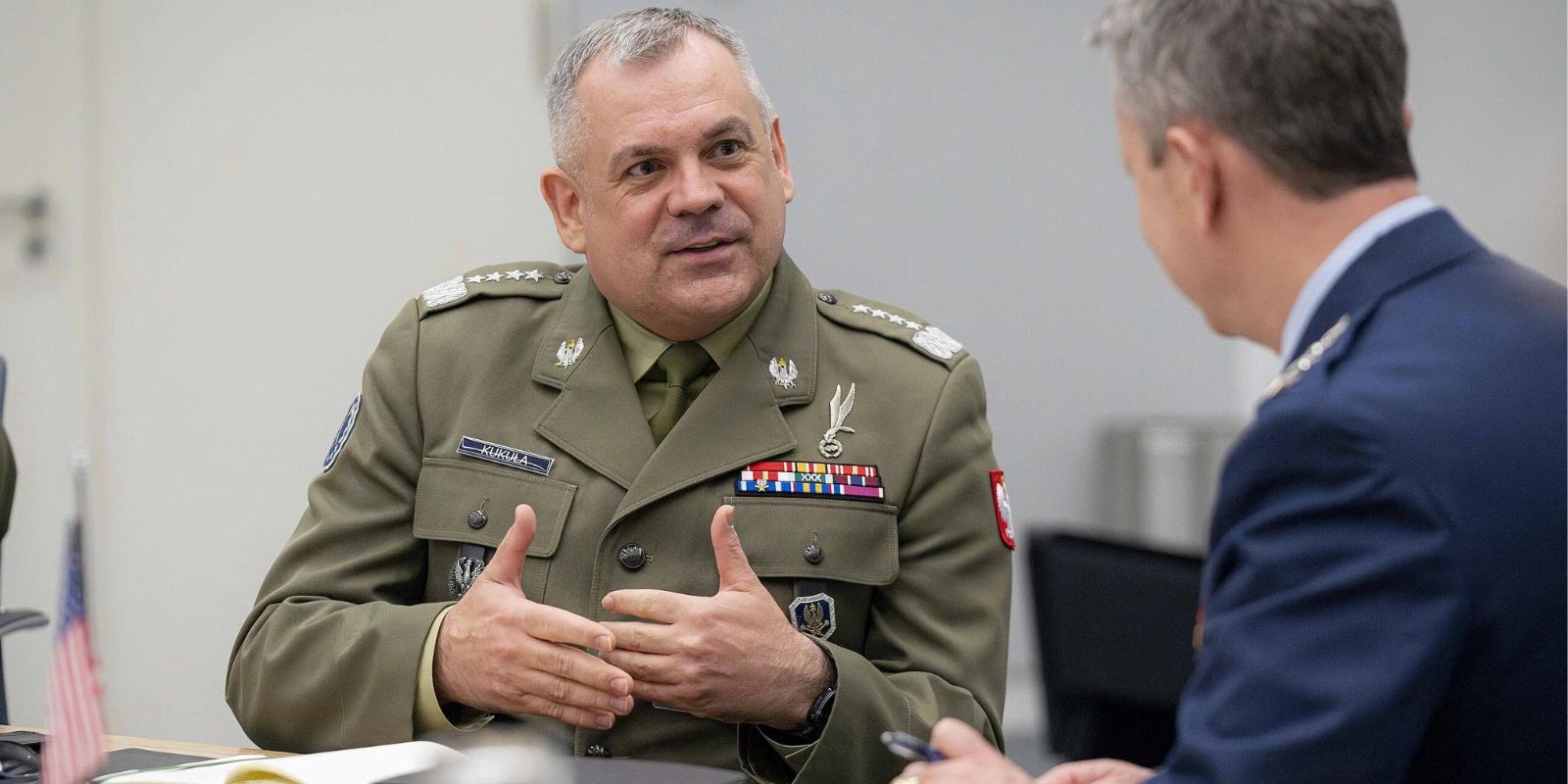
Poland Invokes NATO Article IV
The strongest pillar of NATO’s transatlantic defense alliance employs the principle that an attack on one is an attack on all. This agreement is codified in Article V of the North Atlantic Treaty. After the attacks, Poland moved the alliance, perhaps, one step closer to an Article V decision by invoking Article IV of the treaty.
Under Article IV, any member can formally bring an issue to the attention of NATO’s principal decision-making body, the NAC, to meet and discuss next steps with allies. The article says:
“The Parties will consult together whenever, in the opinion of any of them, the territorial integrity, political independence or security of any of the Parties is threatened.”
Article IV has only been invoked eight times in the nearly 80 years since NATO was created. The last time it was invoked happened in February 2022 when Russia launched its full-scale invasion of Ukraine. It was made at the request of Bulgaria, Czechia, Estonia, Latvia, Lithuania, Poland, Romania, and Slovakia.
NATO Allies Send Reinforcements to Poland
Several NATO members are sending troops, artillery, and air defense systems to secure their eastern flank. The Netherlands and the Czech Republic said they would send defenses to Poland, while Lithuania would receive a German brigade and greater warning of Russian attacks on Ukraine that could cross over.
Germany also said it would "intensify its engagement along NATO's eastern border" and extend air policing over Poland.
French President Emmanuel Macron announced the country would send three Rafale fighter jets to help protect Poland's airspace. "We will not yield to Russia's growing intimidation," Macron said.
Washington’s Response
US President Donald Trump’s first response to reports of the Russian drone incursion was one of bemusement.
“What’s with Russia violating Poland’s airspace with drones?” Trump asked in a brief post on Truth Social on Wednesday. “Here we go!”
Later in the day, Trump took a more serious tone. “Could have been a mistake,” he told reporters as he was departing the White House.
“Could have been a mistake, but regardless, I’m not happy about anything having to do with that whole situation, but hopefully it’s going to come to an end.”
US Ambassador to NATO Matthew Whitaker confirmed that the USA would stand firmly alongside its NATO allies in defense against future airspace violations.
Next Steps
Poland has requested, and been granted, a special NATO Security Council meeting that will take place on Friday at 7 pm Greenwich Mean Time. The outcome of this session could mark a pivotal moment in the trajectory of the Russia-Ukraine war and NATO’s role within it.
For Poland, the incursion underscores the fragility of its eastern border and the stakes of living in proximity to a conflict that continues to destabilize Europe.
For NATO, the incident tests the alliance’s unity, its deterrence posture, and the fine line it must walk between defending its members and avoiding a direct war with Russia.
While Warsaw insists it does not seek escalation, its decision to invoke Article IV places pressure on NATO partners to show solidarity and prepare for the possibility of broader conflict. As European allies rush reinforcements and the United States signals unwavering support, Friday’s meeting will serve as a barometer for how far the alliance is willing to go in confronting future violations.
The next few days will determine whether this drone incident is remembered as an isolated breach or as the spark that brought NATO closer than ever to a direct clash with Moscow since the Cold War.
Suggested reads:
